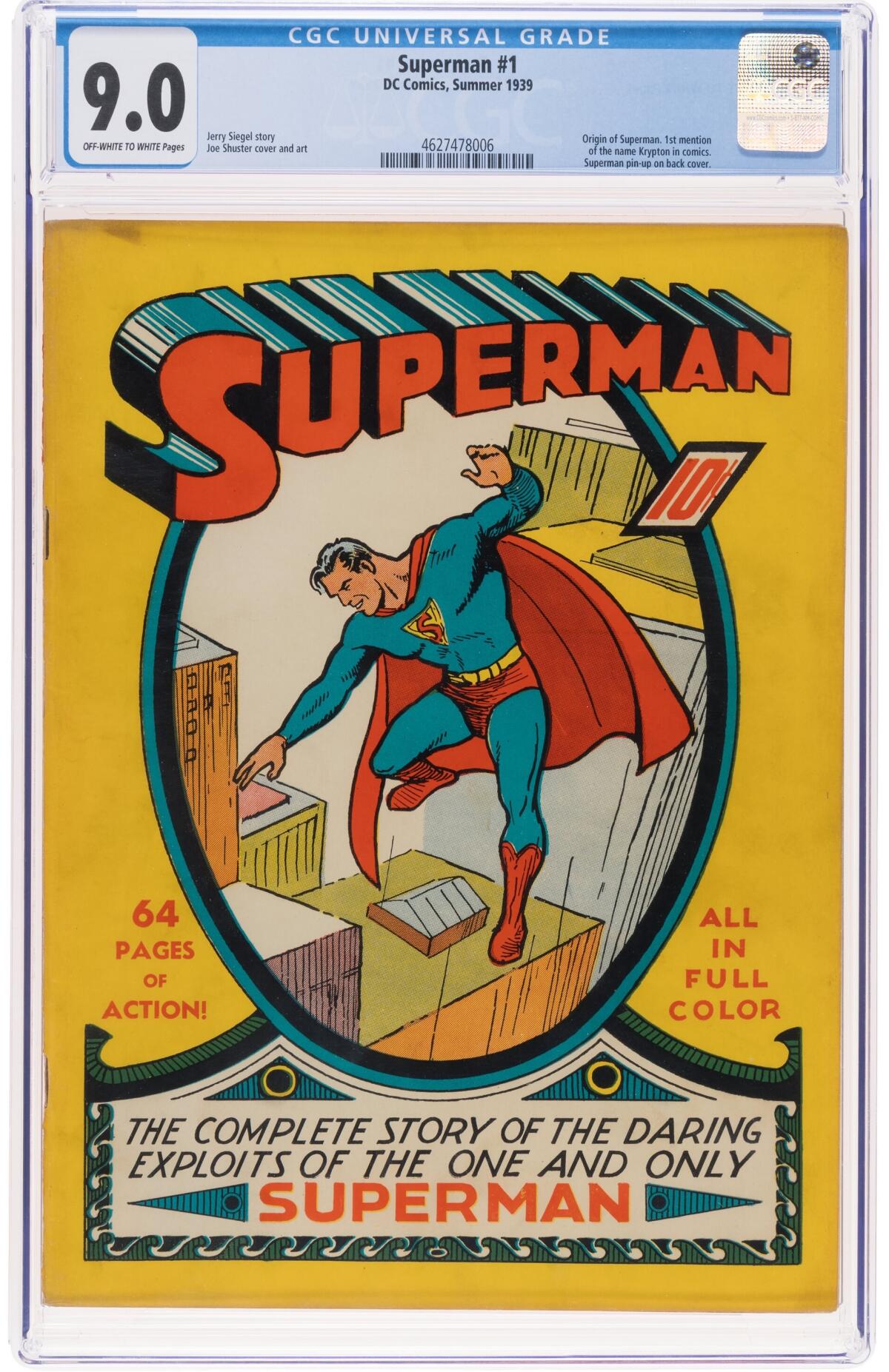‘Superman’ comic found in attic sells for $9.12 million at auction
It’s a bird, it’s a plane … it’s a Superman comic beyond most of our price range!
A pristine copy of “Superman” No. 1 sold for $9.12 million at Heritage Auctions on Thursday, making it the most expensive comic book ever sold at auction. The closing price smashed the record previously set by another Superman-related comic, a copy of “Action Comics” No. 1, which sold for $6 million through Heritage Auctions in 2024.
The first issue of “Superman” was among a small trove of comic books found by three brothers in Northern California who were sorting through their late mother’s belongings. The collection had been tucked under a pile of old newspapers and cobwebs in the attic of their family home, according to a press release from Heritage Auctions.
The copy of “Superman” No. 1 was graded 9.0 on a 10-point scale by the Certified Guaranty Company (CGC), a third-party service that authenticates and grades collectibles, including comics, trading cards and video games. It’s the highest-ever graded copy of the 1939 comic book. (That newspapers helped preserve the comic’s condition would make reporters Lois Lane and Clark Kent proud.)
Superman made his comic book debut in 1938 in “Action Comics” No. 1. The anthology comic is often credited as kicking off the superhero genre in comics. The popularity of the Man of Steel — created by writer Jerry Siegel and artist Joe Shuster — led to the launch of his own comic book series in 1939.
In addition to the launch issue of “Superman,” the mother’s comic book collection included issues of “Action Comics” Nos. 9, 12, 15, 18 and 21.
According to Heritage Auctions, this copy of “Superman” No. 1 is one of just seven known copies with a CGC grade of 6.0 or higher. A CGC graded 8.0 copy of “Superman” No. 1 sold for $5.3 million in 2022.

